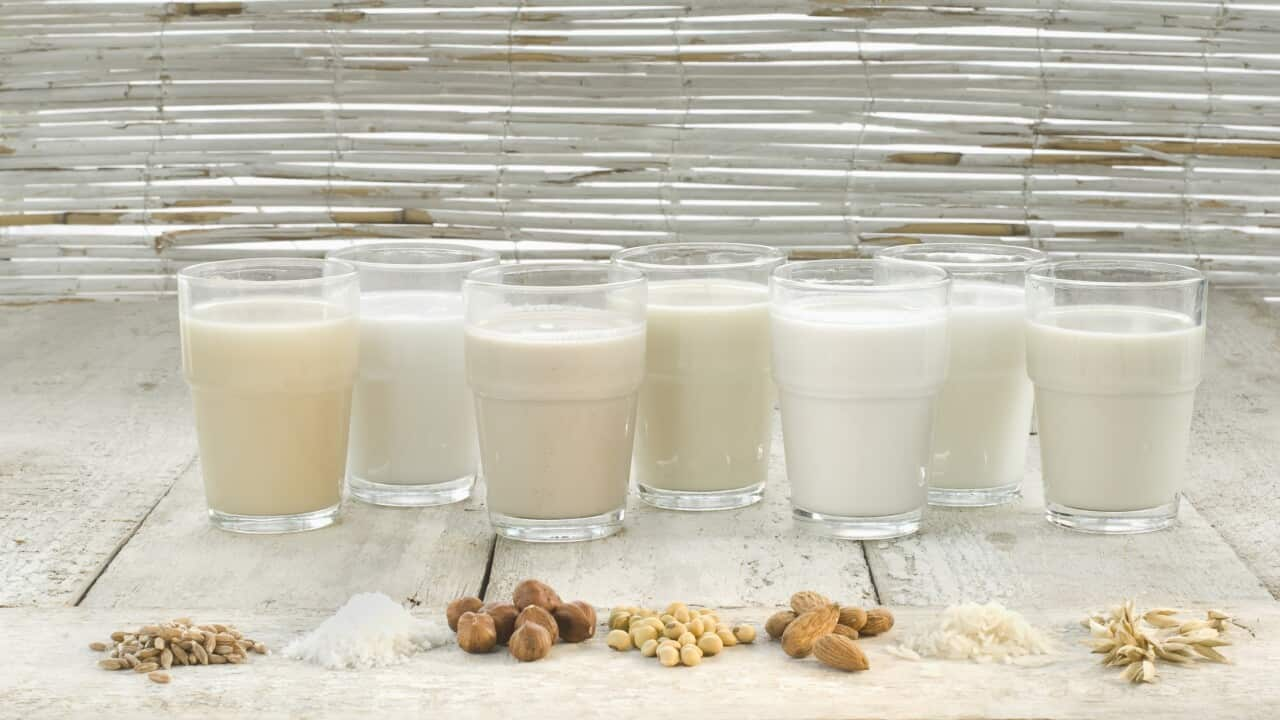There’s nothing more powerful than the miracle of life - watching a newborn baby enter the world and then continue to grow, day-by, fed nothing but milk.
For millions of years, women from all over the world – rich and poor – have fed their babies milk from the human body, breast milk.
So what is in breast milk that makes it so powerful, enabling this human-produced liquid to provide all that a newborn baby needs to develop, and negate a child’s need to derive nutrition from solid foods at the start of its life?
Fed on nothing but breast milk, a baby will double in weight in just five months.
Famed British doctor, author and journalist, Dr Michael Mosley investigates the contents of human breast milk in the lab by tearing it apart in the SBS series Michael Mosley’s Secrets of Your Food.
“Chances are this is the first food you ever consumed – human breast milk,” says Dr Mosley in episode one.
“What’s amazing about this stuff is that it contains all the nutrients a baby needs to grow and thrive. Fed on nothing but breast milk, a baby will double in weight in just five months.” Dr Mosley takes two 100ml samples of human breast milk – enough to feed a newborn baby a few times – and puts them into a centrifuge to separate components of different densities.
Dr Mosley takes two 100ml samples of human breast milk – enough to feed a newborn baby a few times – and puts them into a centrifuge to separate components of different densities.

Dr Michael Mosley investigates the contents of human breast milk in the lab by tearing it apart. (Michael Mosley’s Secrets of Your Food) Source: Michael Mosley’s Secrets of Your Food
The experiment reveals the first visible ingredient in the milk. “This contains about eight grams of fat – the same amount you will find in a bag of crisps”.
According to the fat is the most highly variable macronutrient of breastmilk. It is essential for building a baby’s nervous system and the smooth running of its brain.
“The more full of milk the lactating breast is, the lower the overall fat concentration in the breastmilk,” the association says online.
“The fatty acids of breastmilk vary in relation to maternal diet. If a mother consumes more long-chain polyunsaturated fatty acids (eg omega-3 fatty acids in her diet), her breastmilk will contain higher proportions of those fats.”
I’m going to do something slightly weird because I haven’t tasted breast milk since I was a baby.
Dr Mosley continues the experiment to discover more ingredients, adding a few drops of vinegar to the remaining mixture and then filtering it. “What’s left now is skim milk, mainly water and another vital ingredient: this is protein.”
The states that human breast milk contains two main kinds of proteins – whey, a protein that helps babies to fight infections and 40 per cent of the casein protein. Other proteins include lactoferrin, which inhibits the growth of iron-dependent bacteria in the gut and lysozyme, which protects a baby against E. Coli and .
The solution that remains after Dr Mosley extracts both protein and fat from the breast milk mixture is comprised of vitamins and minerals, as well lactose.
Dr Mosley tests the presence of lactose by taste-testing the milk himself. “I’m going to do something slightly weird because I haven’t tasted breast milk since I was a baby,” he says to the camera before dipping his finger in the milk for a sample.
“It’s surprisingly sweet. Now I guess it shouldn’t be surprising because seven per cent of that is made up of lactose, a sugar, a form of carbohydrate. Babies need carbohydrates [as they are] instant sources of energy.”
Other carbohydrates in breastmilk include oligosaccharides, which are responsible for cell recognition and cell binding.
“The funny thing is that [our needs for these elements of breast milk] don’t really change as we age,” says Dr Mosley. “It just comes to us in different forms of food.”
shows that human milk also contains hundreds to thousands of distinct bioactive molecules that protect baby against infection and inflammation. These molecules can also help to contribute to immune maturation, the development of a child’s organs and a healthy microbial colonisation.
The study notes that human breast milk changes in composition across time and varies within feeds and between mothers.
Despite wanting to breastfeed a child, not every woman can for a vast range of reasons. The offers breastfeeding support to all women, no matter their breastfeeding experience or parenting decisions.
If this article has raised an issue for you or you are in need of support, the association provides a counselling service available for women to access. Call the National Breastfeeding Helpline on 1800 686 268. For more information on the service or to find out how to organise an interpreter,






